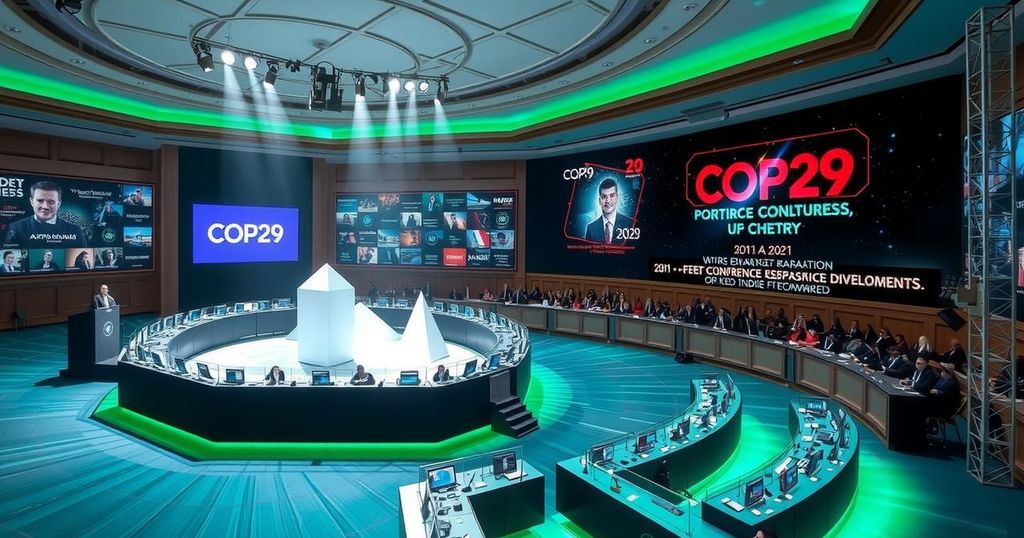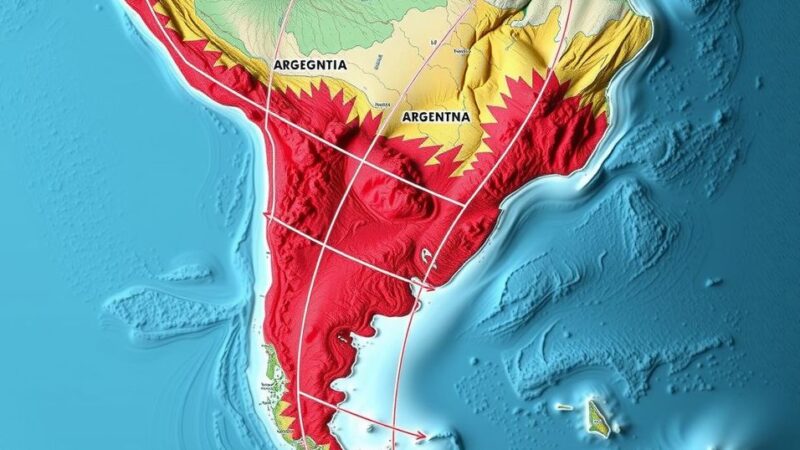COP29 in Azerbaijan reaffirmed longstanding traditions of limited climate commitments, with a pledge lacking in ambition compared to required targets. Despite this, a coalition of over 30 nations has vowed to enhance climate action toward net zero emissions, potentially averting severe temperature rises by century’s end. Strong methane reduction efforts are deemed vital for limiting warming, emphasizing the urgency of unified global cooperation as COP30 approaches.
The recent 29th Conference of the Parties (COP29) to the United Nations climate treaty held in Azerbaijan has followed the tradition of offering minimal commitments, notably pledging $300 billion annually by 2035, which pales in comparison to the required $1.3 trillion. However, a notable coalition of over 30 countries has emerged, promising more aggressive climate action aimed at achieving net zero emissions. This coalition, comprising nations that collectively account for a third of the global GDP, stands as a beacon of potential progress amid growing climate threats.
As the planet nears dangerous levels of warming, with scientists warning of impending climate tipping points, the commitments made by this coalition signal a determination to avert climate disaster. Enhanced measures outlined in a report by Rhodium Group indicate that if countries adhere to their pledges, global temperature rise could potentially be limited to 1.8 degrees Celsius by the end of the century. Furthermore, aggressive reductions in both methane and greenhouse gas emissions could lead to even more significant benefits, allowing the possibility of limiting warming to 1.4 degrees Celsius by 2100—albeit temporarily surpassing the 1.5 degrees Celsius threshold along the way.
Among the leading contributors to these commitments are the United Kingdom, Brazil, and the United Arab Emirates, with the European Union and various other countries also promising new targets. The urgency of establishing impactful strategies is heightened as countries prepare for COP30, set to take place next year in Brazil. Experts emphasize that the reduction of methane emissions is critical in the fight against climate change, with substantial cuts potentially leading to significant reductions in warming effects by mid-century.
One major proponent, Barbados Prime Minister Mia Mottley, advocates for a global accord to drastically reduce methane emissions, reminiscent of the successful Montreal Protocol as an exemplary framework. While the momentum for change is gathering, the unyielding rise of atmospheric methane levels underlines the immediate need for decisive action.
The Conference of the Parties (COP) serves as the supreme decision-making body of the United Nations Framework Convention on Climate Change (UNFCCC), where countries negotiate measures to combat climate change and its impacts. Over the years, these annual meetings have frequently been criticized for the inadequacy of their outcomes and failure to deliver serious commitments, particularly in the face of mounting climate crises. The latest meeting, COP29, though continuing this trend, saw the formation of a crucial coalition intent on more vigorous climate action, as conventional pledges remain insufficient against the backdrop of rising greenhouse gas emissions and record-breaking temperature increases.
In conclusion, while COP29 has once again highlighted the lack of substantial commitments historically seen at UN climate negotiations, the establishment of a new coalition of diverse nations advocating for more aggressive climate policies presents a glimmer of hope. By aiming for net zero emissions and focusing on the reduction of methane and other potent climate pollutants, there is potential for a more secure future regarding global temperature control. Initiatives and commitments made now will play a pivotal role leading up to COP30 and beyond, underscoring the necessity for cooperative global efforts to avert catastrophic climate impacts.
Original Source: bostonglobe.com







